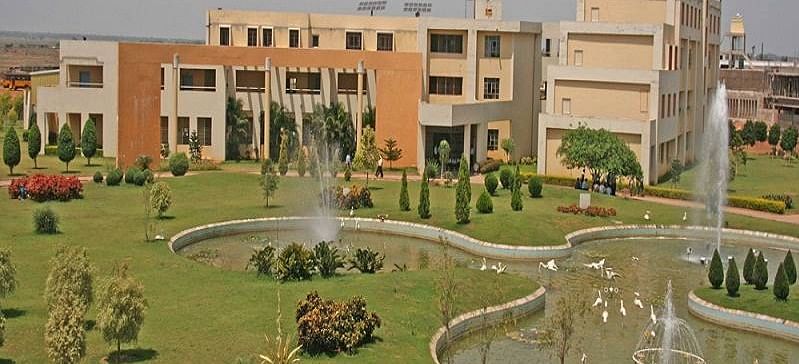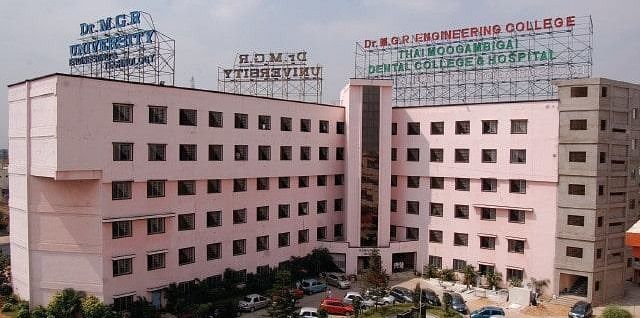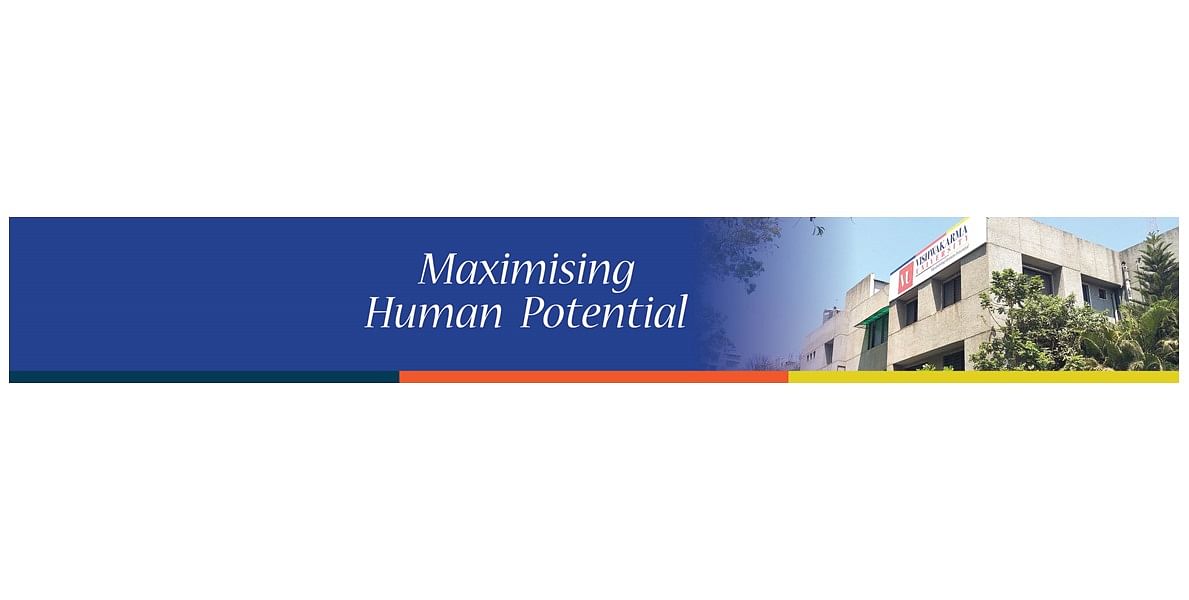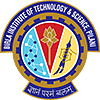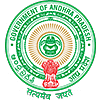D.Pharm 2nd Year Syllabus 2026: Semester Wise Subjects List, Electives & Practicals

D.Pharm 2nd year syllabus aims at the study of traditional systems of medicine, legal and ethical aspects of pharmacy practice, design and optimization of pharmaceutical manufacturing, etc. The D.Pharmacy third-semester syllabus focuses on the study of advanced subjects in anatomy, physiology, and antibiotics, as well as concepts of drug design and antibiotic processes, etc whereas the fourth-semester syllabus is focused on analytical methods, complex chemical manufacturing, and in-depth research on herbal remedies. etc.
The D.Pharmacy syllabus covers an in-depth understanding of pharmacy concepts along with laboratory or practical sessions in the second year on topics like herbal drug standardization, case studies on pharmaceutical jurisprudence, compounding techniques, etc.
Table of Contents
- D.Pharm 2nd Year Syllabus
- D.Pharmacy 2nd Year Subjects
- D.Pharmacy Second Year Practical Topics
- D.Pharmacy 2nd Year Syllabus Question Paper Marking Scheme
- D Pharma 2nd Year Syllabus Reference Books
Also, Check: D.Pharma 1st Year Syllabus
D.Pharm 2nd Year Syllabus
The D.Pharma 2nd year syllabus can vary slightly depending on the specific institution and affiliation but generally covers similar core subjects. The D.Pharmacy course also helps students in the second year to gain hands-on experience in clinical practicals through an internship in a hospital setting. Below is the D.Pharmacy syllabus 2nd year bifurcated into first and second semesters:
|
D.Pharmacy 3rd Semester Syllabus |
D.Pharmacy 4th Semester Syllabus |
|
Human Anatomy and Physiology - II |
Health Education and Community Pharmacy- II |
|
Antibiotics Concepts |
Pharmaceutical Jurisprudence |
|
Pharmaceutical Chemistry-II |
Pharmacognosy-II |
|
Pharmacognosy-I |
Computer Application in Pharmacy |
|
Pharmaceutical Mathematics and Biostatistics |
Practicals/Lab Work |
|
Practicals/Lab Work |
- |
D.Pharmacy 2nd Year Subjects
The D Pharmacy 2nd year subjects are divided into third and fourth semester focusing on areas like novel drug systems, pharmaceutical engineering, pharmacodynamics of drugs, etc. Below given is D.Pharma third and fourth-semester subjects in detail:
D.Pharmacy 3rd Semester Subjects in Detail
D.Pharmacy 3rd sem syllabus covers topics like the classification of antibiotics, drug design principles and design, the study of the plant family, pharmaceutical classification, etc. Below listed are D.Pharm 3rd semester subjects in detail:
|
D.Pharmacy Third Semester Subject |
Topics Covered |
|
Human Anatomy and Physiology - II |
Cardiovascular System, Respiratory System, Digestive System, Endocrine System, Reproductive System, etc. |
|
Antibiotics Concepts |
Introduction to Antibiotics, Mechanism of Action, Classification of Antibiotics, Resistance Mechanisms, etc. |
|
Pharmaceutical Chemistry-II |
Medicinal Chemistry, Organic Chemistry, Biochemistry, Drug Design, Pharmaceutical Analysis, etc. |
|
Pharmacognosy-I |
Introduction to Pharmacognosy, Classification of Crude Drugs, Study of Plant Families, Herbal Drugs, etc. |
|
Pharmaceutical Mathematics and Biostatistics |
Pharmaceutical Calculations, Dosage Calculations, Statistical Concepts, Data Analysis, etc. |
D.Pharmacy 4th Semester Subjects in Detail
D.Pharmacy 4th semester subjects aim at the study of advanced pharmaceutical science, comprehensive analysis of how drugs affect the central nervous system, advanced structure-activity relationship study, etc. Below listed are D.Pharmacy fourth semester subjects in detail:
|
D.Pharm 4th Semester Subjects |
Topics Covered |
|
Health Education and Community Pharmacy-II |
Community Health Education, Health Promotion, Common Health Issues, Disease Prevention, Pharmaceutical Care, etc. |
|
Pharmaceutical Jurisprudence |
Pharmacy Act, Drug and Cosmetic Act, Medicinal and Toilet Preparations Act, Narcotic Drugs and Psychotropic Substances Act, etc. |
|
Pharmacognosy-II |
Isolation and Identification of Phytopharmaceuticals, Plant Tissues and Cells, Quality Control of Herbal Drugs, Traditional Systems of Medicine, etc. |
|
Computer Application in Pharmacy |
Introduction to Computers, Pharmacy Management Software, Data Handling in Pharmacy, Application of Computers in Drug Information Services, etc. |
D.Pharmacy Second Year Practical Topics
The second year D.Pharmacy practical topics focus on drug administration techniques, herbal drug quantitative and qualitative analysis, pharmacy management software, etc. Below listed are the practical topics covered in D.Pharm second year syllabus:
|
3rd Semester Practical D.Pharmacy Subjects |
4th Semester Practicals D.Pharmacy Subjects |
|
Pharmacognosy-I |
Pharmacognosy-II |
|
Pharmaceutical Chemistry-II |
Computer Application in Pharmacy |
|
Antibiotics Usage Application |
- |
|
Human Anatomy and Physiology - II |
- |
D.Pharmacy 2nd Year Syllabus Question Paper Marking Scheme
Below listed is the marking scheme for the third and fourth semesters of the DPharmacy syllabus bifurcated into theory and practical subjects. The marks are evaluated based on internal assessments like class tests and the final end semester examinations.
D.Pharmacy 3rd Semester Syllabus Marking Scheme
Below listed is the D.Pharma 3rd semester syllabus marking scheme for the theory and practical subjects covered:
|
Subjects |
Category |
Internal Assessment |
End Semester Examination |
Total Marks |
|
Human Anatomy and Physiology - II |
Theory |
25 |
75 |
100 |
|
Antibiotics Concepts |
Theory |
25 |
75 |
100 |
|
Pharmaceutical Chemistry-II |
Theory |
25 |
75 |
100 |
|
Pharmacognosy-I |
Theory |
25 |
75 |
100 |
|
Pharmaceutical Mathematics and Biostatistics |
Theory |
25 |
75 |
100 |
|
Human Anatomy and Physiology - II |
Lab/Practical |
15 |
35 |
50 |
|
Antibiotics |
Lab/Practical |
15 |
35 |
50 |
|
Pharmaceutical Chemistry-II |
Lab/Practical |
15 |
35 |
50 |
|
Pharmacognosy-I |
Lab/Practical |
15 |
35 |
50 |
D.Pharmacy 4th Semester Syllabus Marking Scheme
Below listed is the D.Pharm 4th sem syllabus marking scheme for the theory and practical subjects covered:
|
Subjects |
Category |
Internal Assessment |
End Semester Examination |
Total Marks |
|
Health Education and Community Pharmacy- II |
Theory |
25 |
75 |
100 |
|
Pharmaceutical Jurisprudence |
Theory |
25 |
75 |
100 |
|
Pharmacognosy-II |
Theory |
- |
75 |
75 |
|
Computer Application in Pharmacy |
Theory |
25 |
75 |
100 |
|
Pharmacognosy-II |
Lab/Practical |
15 |
35 |
50 |
|
Computer Application in Pharmacy |
Lab/Practical |
15 |
35 |
50 |
D Pharma 2nd Year Syllabus Reference Books
Students can download D.Pharmacy syllabus 2nd year pdf from the university or college website to know more about the reference books. Below listed are a few important books for 2nd year DPharmacy syllabus:
|
D.Pharmacy 2nd Year Book |
Author |
Topics Covered |
|
Pharmaceutics: The Science of Dosage Form Design |
Aulton, Michael E. |
Pharmaceutical Dosage Forms, Excipients, Drug Stability, Tablet Formulation, Parenteral Formulations, etc. |
|
Medicinal Chemistry |
Ashutosh Kar |
Drug Design, SAR (Structure-Activity Relationship), Medicinal Chemistry of Antibiotics, Antiviral Drugs, CNS Agents, etc. |
|
Pharmacology: Principles and Practice |
Miles Hacker, William S. Messer, Robert M. Taylor |
Principles of Pharmacology, Autonomic Nervous System, Cardiovascular Pharmacology, Respiratory Pharmacology, CNS Pharmacology, etc. |
|
Textbook of Pharmacognosy and Phytochemistry |
Biren Shah, A. K. Seth |
Pharmacognosy, Plant Metabolism, Extraction Techniques, Plant Constituents, Herbal Drugs, etc. |
Top D.Pharma [Diploma in Pharmacy] Colleges
Top Pharmacy Entrance Exams
D.Pharma Fee Structure
FAQs on D.Pharma 2nd Year Syllabus
Q: How is D.Pharma 2nd year syllabus assessed?
Q: What skills are developed in 2nd year of D.Pharma?
Q: What practical topics are covered in Pharmaceutical Chemistry-II?
Q: What is taught in Hospital and Clinical Pharmacy in D.Pharma second year?
